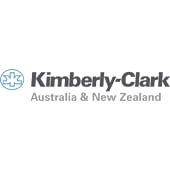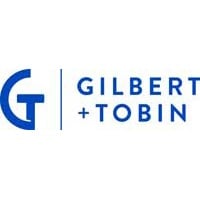

General counsel, Australia and New Zealand | Kimberly-Clark Australia





George Papanikitas
General counsel, Australia and New Zealand | Kimberly-Clark Australia
General counsel and company secretary | Kimberly-Clark Australia
General Counsel and Company Secretary | Kimberly-Clark Australia and New Zealand
Following a high-profile campaign by wastewater authorities and certain consumer advocates, in 2016 the ACCC brought proceedings against Kimberly-Clark Australia in relation to allegedly misleading and deceptive claims concerning its flushable wipe products. The trial was heard in the Federal Court late last year, and involved witnesses from Australia, the UK and the US. In June 2019 the court found in Kimberly-Clark Australia’s favour on each of the ACCC’s contentious allegations. The ACCC has appealed the decision.
In August 2019 Kimberly-Clark Australia announced the outsourcing of its entire Australian warehousing and distribution footprint to Toll Logistics. The transaction involved negotiating and drafting a complex, and in many respects first-of-its kind, master services agreement to effect the transition.
The key to building strong relationships with business partners is the adoption and, importantly, demonstration of a strategic, business focused mindset. That means viewing legal challenges in their business context, flagging risks and obstacles early and then offering solutions and alternatives. It also means being financially and commercially literate and ingratiating yourself in your business partners’ teams (whilst remaining dispassionate and independent). In addition to building relationships, it makes our work more meaningful and enjoyable. To that end, Kimberly-Clark has a global framework in place for recognising revenue generation, growth or cost saving initiatives that we as a legal team enable.
Priding ourselves on being lean and efficient, we don’t have the luxury of a significant legal tech budget. We leverage existing company tools, including in-house communications channels, and a dedicated team website. We keep track of developments in this space, with a view to investing in future if we foresee significant benefits.
Developments in the competition, privacy and consumer law space are most impactful on our business and industry more generally. Thankfully, Kimberly-Clark embraces compliance and the importance of robust policies or controls – so that we haven’t had to make wholesale changes to the way that we run our business or legal practice to adapt to recent developments. It’s an ongoing, iterative process involving, for example, changes to personal information collection statements, and related arrangements with suppliers. Beyond legislative changes, we also stay close to Federal Court decisions in consumer law matters, and track policy statements and priorities issued by regulators.
Treating external counsel like an extension of the team; bring them in early; invest time in explaining the commercial drivers for the work; introduce them to business partners for significant pieces of work, I’ve experienced firsthand how motivating and impactful this can be for external counsel. This is all in the context of mutual accountability – be choiceful on when to use external counsel and transparent and upfront on fee budgets.
Find a role with an organisation that aligns with your personal interests and values – working for an organisation that offers products or services that motivate or excite you, or that is a positive force for change, has the potential to transform the way you view your work. Embrace private practice for the excellent training ground that it is, and throw yourself into a diverse range of work, in anticipation of deploying a broad skillset in-house. Adopt a general counsel mindset from the outset – think and act like a leader and strategic business partner, whether you’re a junior in-house lawyer or in private practice.
The ACCC’s recent Digital Platforms Inquiry report offers a broad reflection on the scale and influence of digital platforms, the state of the commercial media and news industry and the role of the consumer (and their data) in this environment.
Much has been made of their potential impact on privacy laws, but the 23 recommendations in the report also cover: the competition law implications of the rise of digital platforms (with a focus on Google and Facebook); harmonisation of the regulatory framework for news and digital media; and proposed government funding and tax reform to address underinvestment in credible journalism.
On the privacy front, the ACCC seeks to bolster transparency in the collection and use of personal information, but in the context of greater scrutiny of digital platforms’ business activities – the ACCC’s premise being that there is an inherent imbalance in the bargaining relationship between digital platforms and both news media businesses and advertisers. Recommendations that, if adopted, are likely to affect corporates include an expanded Privacy Act definition of “personal information” to expressly capture IP addresses, location data and device identifiers, strengthening of notification and consent requirements, and introduction of a right to request erasure or personal information. [Also], an increased penalties for Privacy Act breaches; and the introduction a statutory tort for serious invasions of privacy.
The report also identified the proliferation of “click-wrap agreements, bundled consents, and take-it-or-leave-it terms” and has recommended new prohibitions against unfair contract terms and certain unfair trading practices.
Underpinning the recommendations is the requirement, first expressed by the Productivity Commission, of a “social licence” built on a baseline level of consumer acceptance and trust in the handling of personal data. There is merit in the ACCC’s broader suggestion that this social licence is critical not just to consumer empowerment and protection, but also to the economic growth and other benefits that flow from the digital economy.
There is clearly more to come as the ACCC and federal government process the proposals, but it is difficult to understate the wide range and potential implications of the report and the groundswell of global regulatory scrutiny that it forms one part of.